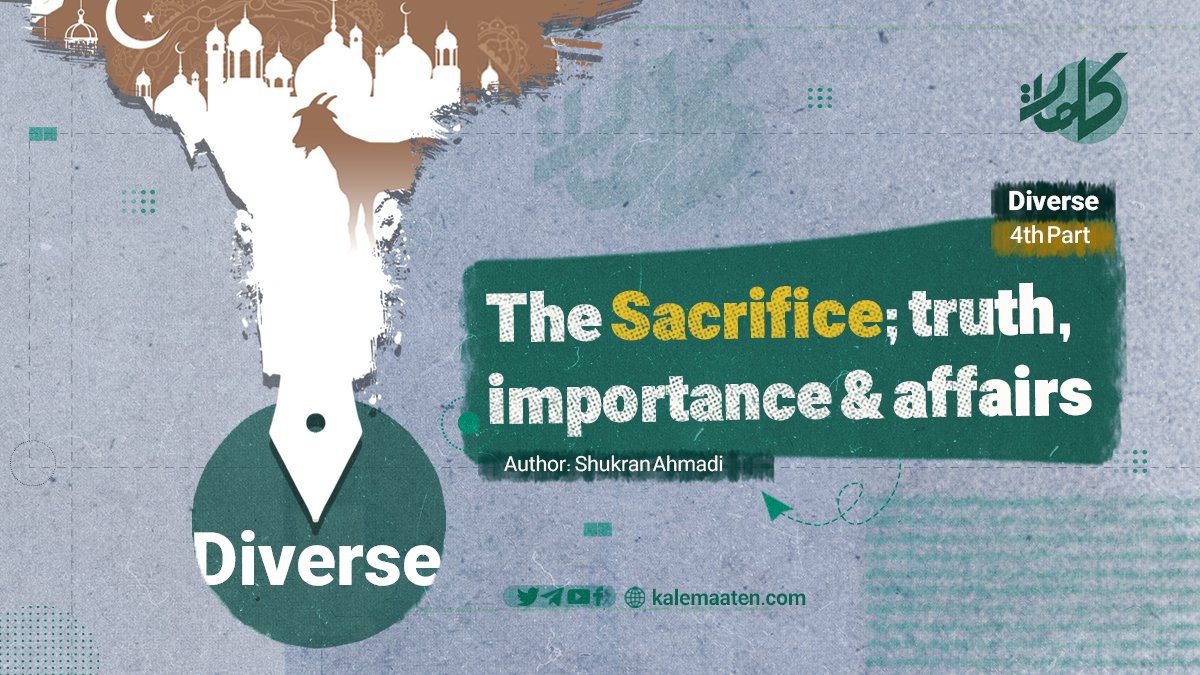
Author: Shokran Ahmadi
The rules of Eid al-Adha and sacrifice
The virtues of the ten days of Dhu al-Hijjah
The Prophet, peace and blessings Be upon him, said: “There is no better time to worship Allah Almighty than the decade of Dhu al-Hijjah.” Fasting for one day in it, is equal to fasting for a year and worshiping for one night in it, is equal to worshiping the night of Qadr.”
Almighty Allah has sworn to ten nights in Surah “Fajr”. According to the opinion of all scholars, those ten nights are the nights of the first decade of Dhul-Hijjah, especially the ninth of Dhul-Hijjah; That is, the day of Arafah and the night between Arafah and Eid have a special virtue. Fasting on the day of Arafah causes atonement for the sins of the past year and the next year, and staying awake on the night of Eid and engaging in worship is a great reward and virtue.
Takbir Tashriq
«اللهُ أَكْبَرُ اللهُ أَكْبَرُ لا إله إلا الله والله أكبر الله أكبر ولله الحمد».
“Allah is great, Allah is great, there is no god but Allah, Allah is great, Allah is great, and praise be to Allah.”
From Fajr prayer on the day of Arafah; That is, from the 9th of Dhul-Hijjah to the 13th Asr, reciting this takbeer once after every obligatory prayer is obligatory. The fatwa states that the one who prays in congregation or prays individually are equal in this ruling, also saying Takbeer is obligatory for every man and woman; Of course, a woman should not say Takbeer loudly.
Issue: If the imam forgets the takbeer, the muqtadi should say the takbeer in a loud voice.
Issue: Fasting on the Day of Arafah is equivalent to forgiving the sins of two years, One year past and one year to come.
Note: It is necessary to say this takbeer in a medium voice. Many people neglect it; because either they don’t say takbeer at all or they say takbeer slowly, it is necessary to correct this.
Sunnah of Eid al-Adha
On the day of Eid al-Adha, the following matters are considered:
-
Waking up early in the morning;
-
Bathing and brushing;
-
Wearing clean and smooth clothes that a person has;
-
Scenting;
-
Not eating anything before the Eid prayer;
-
On the way to Eidgah, say Takbeer loudly.


